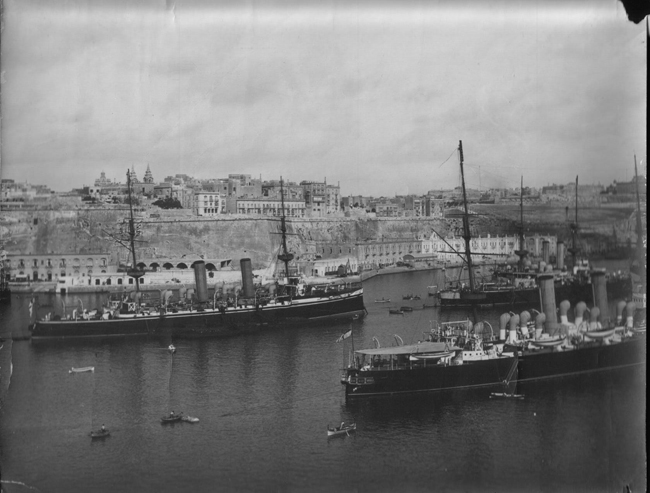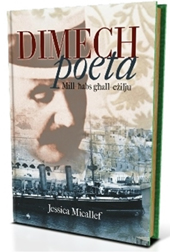Saturday 5 September, 1914 was a most ordinary day, with the typical comings and goings in Grand Harbour. However, that day was to go down in history as one of national importance. For it was the inauspicious day that one of Malta’s most acclaimed celebrities of the 20th century, Manuel Dimech, met his fate. It was the day he was permanently exiled.
On that day, at 7 pm, Dimech was compulsorily removed from Malta and boarded the Italian steam ship Stura, captained by Enrico Esposito. Dimech was one of the 49 passengers on board, apart from the 55-member crew.
Dimech was considered dangerous by the British colonial rulers and more so by the authorities of the local Catholic Church. He was a man who came from the lowest of the lower classes, but one who, through his writings and public actions, had dared challenge the social and political structures of his time. He politicized the Dockyard workers, emboldened women to fight for their rights, and called upon the Maltese nation to claim its freedom and independence.

A few years before his exile, Dimech had been excommunicated by the Church, and systematically persecuted. He was portrayed as a flesh and blood demon, wizard and heretic, intent only on the destruction of the Kingdom of God and, in the process, of the privileges of Church and Empire. There was no place for so unnatural a fiend, and his elimination became a number one priority.
Indeed, Dimech had been bold and brazen when he was expected to obey, submit and keep his place. Not only he, but all those who were of low class and manual labourers. Nevertheless, Dimech deemed poverty, illiteracy and deprivation as needless and, even more, an evil caprice of the high and mighty. And he said so loud and clear. For this he paid with his life.
On 5 September 1914, Dimech was furtively ushered to a waiting vessel in Grand Harbour. He did not know what charges had been brought against him, or who his accusers were. Five days earlier, he had been arrested while teaching a class of children, and found guilty without the decency of a trial. The British colonial governor signed the writ that sent Dimech into exile without bothering to check the legality of his action. World War I had just begun, martial law had been declared, and this was reason enough, it seems, to expel the firebrand without much ado.
Dimech eventually ended up in concentration camps in Egypt, and after living for six-and-a-half years in exile, he died alone and forsaken. His enemies seem to have won. But no, in time Dimech’s memory was reawakened and triumphed. Today he is considered to be one of the foremost heroes of Malta’s national character and distinctiveness. Moreover, he is esteemed as a brave and valiant champion of rights and justice for one and all. His monument stands at Castille Square in Valletta.

An anthology by Jessica Micallef with Dimech’s poems is to be published to commemorate the 100th anniversary of Dimech’s exile. The poems, composed in Italian, Maltese, English and French, cover the greater part of Dimech’s life, both in Malta and abroad, even from the time of his exile. Extensive research has gone into this publication. It includes critical and historical notes, and analytical essays. Its presentation pays tribute to Dimech’s romantic style.
 The book – Dimech Poeta: Mill-habs ghall-ezilju (Dimech the Poet: From prison to exile) – is being published by Sensiela Kotba Socjalisti and will be launched on the 100th anniversary of Dimech’s exile on5 September at 7pm, at the Valletta Sea Front.
The book – Dimech Poeta: Mill-habs ghall-ezilju (Dimech the Poet: From prison to exile) – is being published by Sensiela Kotba Socjalisti and will be launched on the 100th anniversary of Dimech’s exile on5 September at 7pm, at the Valletta Sea Front.